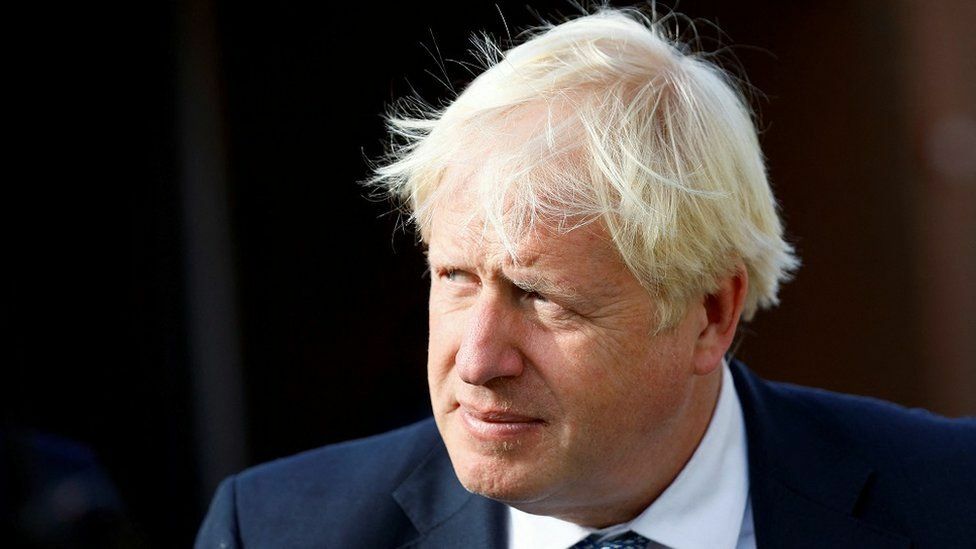Johnson bypasses government to provide WhatsApp messages to Covid inquiry

Prime Minister Boris Johnson has agreed to provide unredacted WhatsApp messages from May 2021 directly to the Covid inquiry, despite the government’s refusal to do so. The Cabinet Office has initiated a legal challenge against the inquiry’s request for text messages from the former PM and officials, claiming that many of the messages are not pertinent to the investigation. However, Baroness Hallett, the head of the inquiry, insists it is her responsibility to determine relevance.
In a letter to Baroness Hallett, Johnson expressed his understanding of the government’s legal action, but stated that he was “perfectly content” to release messages he had already sent to the Cabinet Office. He also mentioned his desire to send messages dating back to before April 2021, but was informed that he could no longer access his phone from that time “safely” due to security concerns. The phone number had been available on the internet for 15 years, raising security issues.
Messages received before this date would likely cover discussions about the coronavirus lockdowns implemented in 2020. Johnson has requested assistance from the Cabinet Office to securely turn on his old phone, in order to “test” the advice received from the security services. He also informed Baroness Hallett that he no longer had access to his contemporaneous notebooks, as they had been handed over to the Cabinet Office. He has asked that they be passed on to the inquiry, or returned to his office so he can provide them directly.
The inquiry had previously instructed the government to submit messages between Johnson and 40 other ministers and officials during the pandemic by 4pm on Thursday. The Prime Minister stated that he was “more than happy” to give the unredacted material to the inquiry. The Cabinet Office also possesses communications between ministers and civil servants that do not involve Johnson. On Thursday, it missed the deadline and announced that it would “with regret” launch a judicial review of the demand, while pledging to “continue to co-operate fully with the inquiry”.
The Cabinet Office defended its decision not to hand over certain messages, arguing that many of the communications were “unambiguously irrelevant” and submitting them to the inquiry would compromise ministers’ privacy and hinder future decision-making. In a letter to the inquiry, the Cabinet Office stated that the demand “represents an unwarranted intrusion into other aspects of the work of government” and also an intrusion into the privacy and protection of personal information of those involved.
Science minister George Freeman, speaking on the BBC’s Question Time, suggested that “courts will probably take the view” that Baroness Hallett has the right to decide “what evidence she deems relevant”. However, he also emphasised the importance of privacy and the need to test the handling of private correspondence. Freeman expressed his hope that the inquiry would respect the privacy of any information not related to Covid.
Labour’s deputy leader, Angela Rayner, criticised the government’s legal action as a “desperate attempt to withhold evidence”, while the Liberal Democrats described it as a “kick in the teeth for bereaved families”. Lord Gavin Barwell, former chief of staff to ex-Prime Minister Theresa May, told the BBC’s Today programme that the government was making a “bad mistake”, adding that the inquiry’s purpose was to instil confidence in the truth, which would be undermined if the government controlled what the inquiry could see.
Latest Thailand News
Follow The Thaiger on Google News:


























